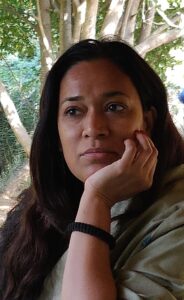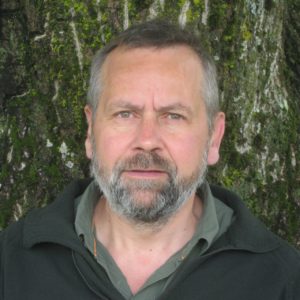Your cart is currently empty!

A Conversation about Duality and Non-duality in East and West
- This event has passed.
February 5, 2022 @ 6:00 pm – 8:00 pm CET

A Conversation about Duality and Non-duality in East and West
with Anjali D’souza, Andrew Fellows and Shantena Sabbadini
Saturday February 5, 2022
9:00 PST | 12:00 EST | 17:00 GMT | 18:00 CET
2-hour session
The session is live and you will be sent the RECORDING.
Our primary subjective experience is one of duality, of experiencing the separateness of self and the rest of the world around us. This informs how we live and perceive the world, the knowledge and institutional systems we have created throughout history and as we continue to do so in the present.
On the other hand, some Eastern systems and mystics of all religions have insisted on the fundamental non-duality of the world. In India for instance, the belief in the discrete disconnected egoic self is seen as epitomizing ignorance and the root cause of suffering. The experience of nonduality liberates and transforms one’s existence. The Tao in Chinese philosophy is the symbol and experience of integration and wholeness, nonduality beyond duality, undergirding the universe. In our contemporary times the insights and explorations into nonduality have been coming through Quantum physics; consequently, initiating much needed dialogues between science and spirituality.
Nonduality as a construct and experience is not merely a wondrous spiritual belief, or an exploration into fascinating but abstract ideas. It has tangible consequences individually, collectively and politically for the integrity of ourselves and our world/planet as a whole. It impacts how we choose to live, relate and behave as we begin to understand that we are all one indivisible whole.
To see the Full Dualities Program

Anjali D’Souza has a Master’s degree in Sociology and has just completed her training in Jungian Analysis at ISAP-Zurich. She has 20 years of experience working in India as a psychotherapist and consultant with individuals, groups, communities and organisations. She also trained as an Indian classical dancer and subsequently studied dance expression and Authentic Movement. Her multi systemic approach is shaped by her own experiences, C.G. Jung, the expressive arts, Indian philosophy, and gender and post-colonial studies.

Andrew Fellows, is a Jungian Analyst (AGAP/IAAP) with private practices in Bern and Zürich, a deep ecologist, and a writer. He holds a Doctorate in Applied Physics (Dunelm), and enjoyed two decades of international professional engagement with renewable energy, sustainable development and environmental policy before moving from the U.K. to Switzerland in 2001 to study Analytical Psychology. His special interests include the anima mundi, the mid-life transition, the new sciences, and the use of depth psychology to understand and address global collective and environmental problems, especially climate change and other aspects of the Anthropocene. His personal passions include nature, mountains and music, and he lives over three thousand feet above sea level in rural Switzerland without a car.
His lecture draws on many years of independent research and writing, from which he has presented his evolving ideas since 2007 at international conferences in England, Estonia, Japan, Switzerland and the U.S. in addition to teaching at ISAP Zurich. His first book, published by Routledge in March 2019, is Gaia, Psyche and Deep Ecology: Navigating Climate Change in the Anthropocene.

Shantena Augusto Sabbadini graduated from the University of Milan in 1968 and was awarded his PhD in physics from the University of California in 1976. In Milan he researched the foundations of quantum physics, laying the base for what is currently known as the decoherence interpretation of quantum physics. At the University of California, he contributed to the theoretical work behind the first identification of a black hole, the X-ray source Cygnus X-1. In the 1990s he was scientific consultant for the Eranos Foundation, an East-West research center founded under the auspices of C.G. Jung in the 1930s. In that context he produced various translations and commentaries of Chinese classics in Italian and English, including the Yijing and the trilogy of Daoist classics, the Laozi, the Zhuangzi and the Liezi. From 2002 onwards he collaborated with F. David Peat running the Pari Center for New Learning and in 2017 he succeeded his friend and colleague as director of the center.
Shantena leads workshops and courses on the philosophical implications of quantum physics, on Daoism, and on using the Yijing as a tool for introspection. His most recent book in English, Pilgrimages to Emptiness: Rethinking Reality through Quantum Physics, was published by Pari Publishing in 2017.
